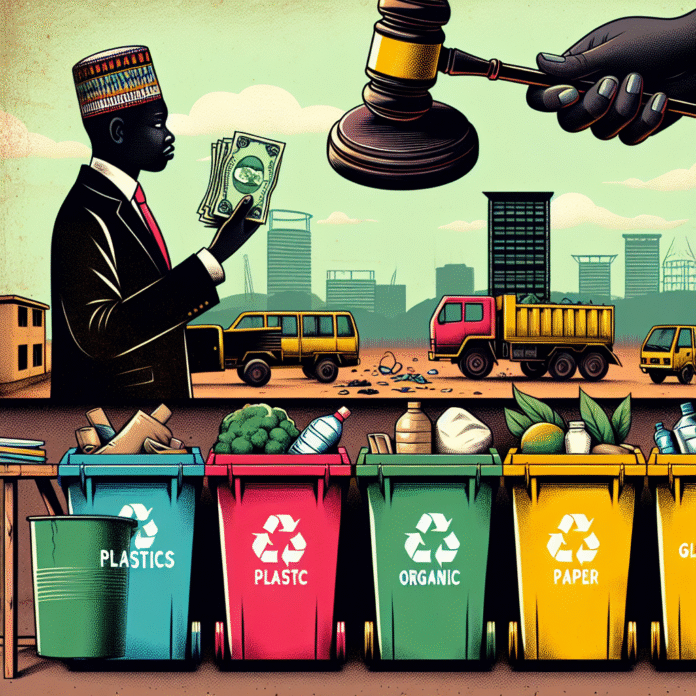Kenyans Risk Fines for Not Sorting Waste Under New Environmental Law
Kenyans Face Penalties for Failing to Sort Garbage Under New Environmental Law
Nairobi Wire – In an effort to address the growing waste management crisis, Kenya has implemented a new environmental law mandating citizens to sort their garbage. This legislation aims to promote recycling and reduce the amount of waste that ends up in landfills, which has become a significant environmental concern across the nation.
Under the new law, residents are required to separate their waste into designated categories, including organic, recyclable, and non-recyclable materials. Failure to comply with these regulations may result in penalties, including fines or community service. The Kenyan government has emphasized the importance of individual responsibility in combating environmental degradation and fostering a culture of sustainability.
Background on Waste Management in Kenya
Kenya generates an estimated 14,000 tons of waste daily, with a majority ending up in overcrowded dumpsites. This has led to severe pollution, health risks, and environmental degradation. The new law is part of a broader initiative to tackle these issues, which includes public awareness campaigns and incentives for businesses that adopt sustainable practices.
Implementation and Community Involvement
To ensure the effective implementation of the new regulations, local authorities are tasked with conducting public education programs to inform citizens about the importance of waste sorting and the proper methods to do so. Community involvement will be crucial, as neighborhood groups and organizations will play a significant role in monitoring compliance and encouraging good practices.
Furthermore, the government plans to collaborate with private waste management companies to provide residents with easily accessible recycling bins and collection services. This partnership aims to streamline the waste sorting process and make it more convenient for citizens to adhere to the new law.
Long-Term Goals and Environmental Benefits
The long-term goals of the new legislation extend beyond immediate waste management concerns. By promoting recycling and reducing waste generation, the Kenyan government hopes to mitigate the adverse effects of climate change, conserve natural resources, and protect public health. The initiative aligns with global sustainability efforts, including the United Nations Sustainable Development Goals, which emphasize responsible consumption and production.
In conclusion, the introduction of penalties for failing to sort garbage marks a significant step towards improving environmental management in Kenya. As citizens adapt to these new regulations, the hope is that the nation will cultivate a more sustainable future, where waste is minimized, and resources are used more efficiently. It remains to be seen how effectively these laws will be enforced and whether they will lead to meaningful change in waste management practices across the country.
